As a cloud developer, you’re tasked with creating and managing multiple workflows and code deployments across a wide range of Oracle Cloud Infrastructure (OCI) services. This job often involves switching between local and remote development environments and various tools. The cost of context switching runs high, and focus is fragile. To help you be more productive and make development on OCI easier, we’re excited to launch the new OCI Code Editor!
Code Editor enables you to edit and deploy code for various OCI services directly from the Oracle Cloud Console. You can now update service workflows and scripts without having to switch between the Console and your local development environments. This streamlining makes rapidly prototyping cloud solutions, exploring new services, and accomplishing quick coding tasks easier.

Focus on code, not plumbing
You spend a lot of time and effort setting up and managing complex development environments, downloading the right extensions and libraries, and so on. Code Editor lets you focus solely on writing efficient code, while OCI takes care of the complex infrastructure setup and management tasks on your behalf. Remote Git access and a familiar look and feel also make it easy to start coding immediately.
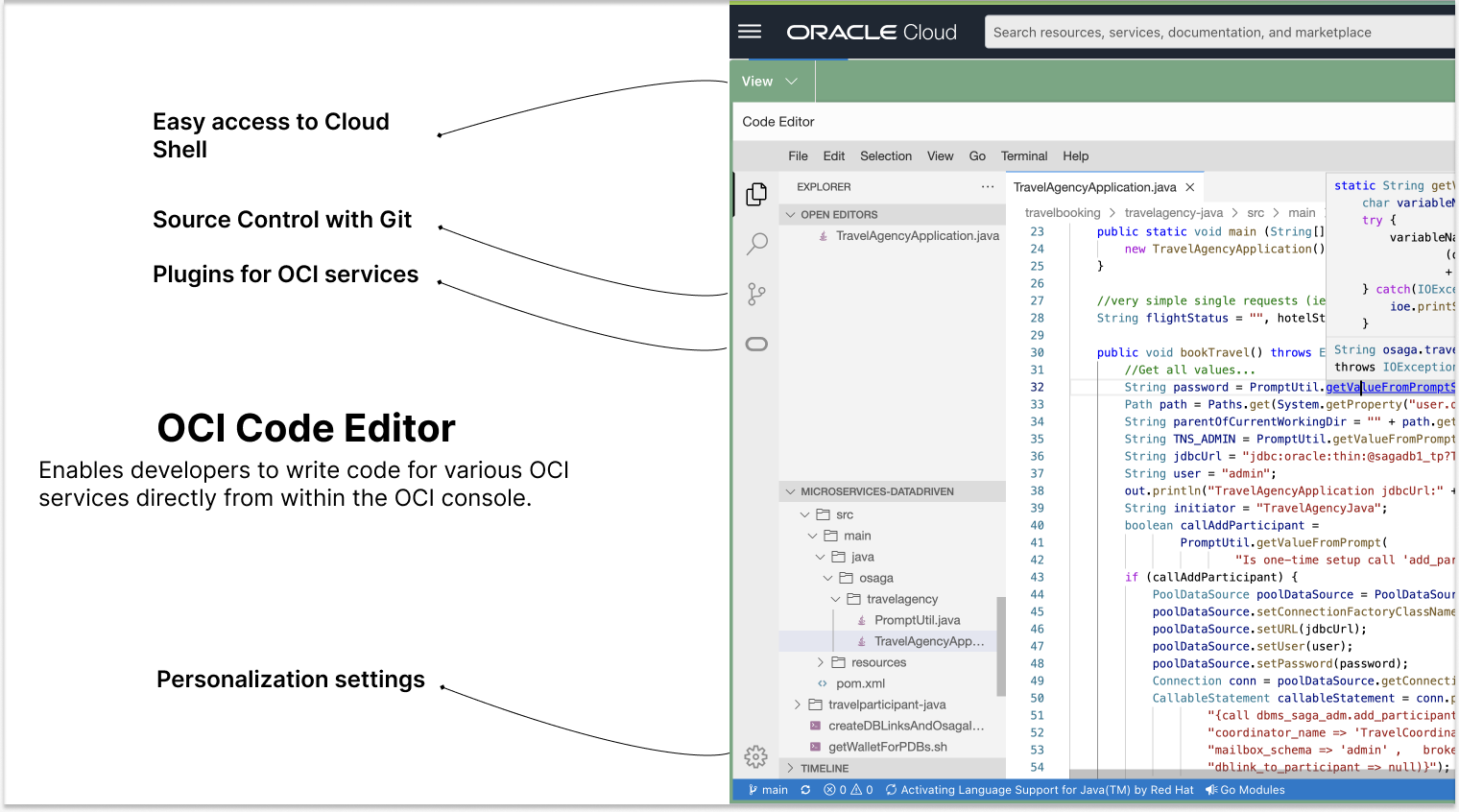
Let’s look at some of Code Editor’s key capabilities designed to bolster your productivity and offer a seamlessly integrated development experience on OCI.
Built-in integration with OCI services and Cloud Shell
Code Editor has out-of-the-box integrations with key OCI services, enabling a multitude of use cases — such as: natively creating and deploying Functions, editing Resource Manager infrastructure-as-code configurations, editing Data Science job artifacts, and developing API specifications using the interactive OpenAPI rendering functionality. Support for other OCI services, including Data Flow, is coming soon.
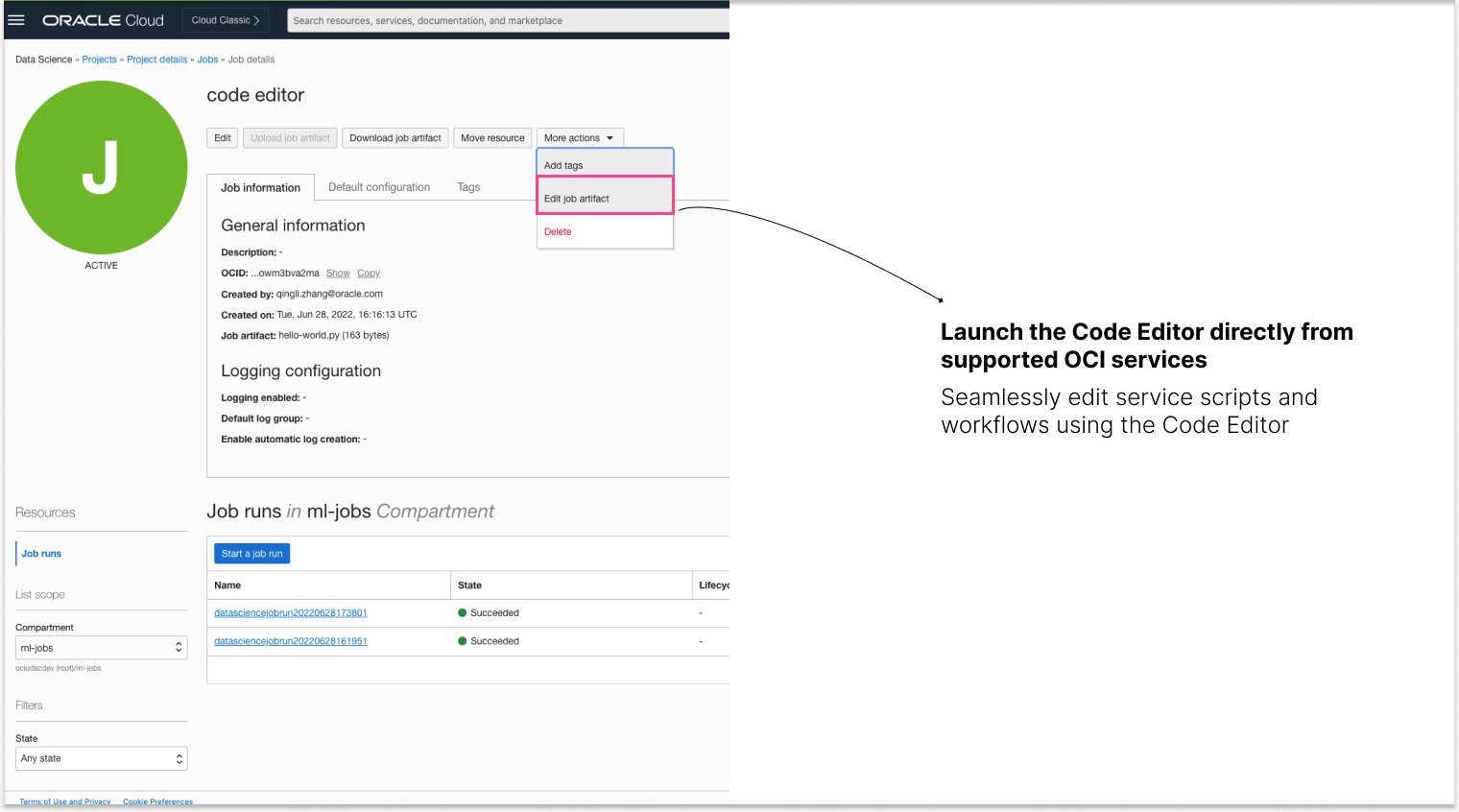
Direct access to the Cloud Shell from Code Editor enables you to edit files in your Cloud Shell home directory and natively compile, run, and deploy code. You can also use the over 30 cloud-based developer tools that ship with Cloud Shell, such as command line interface (CLI), Git, and GraalVM Enterprise JDK 17 which allows you to quickly test and iterate on your code, improving its quality and saving you time.
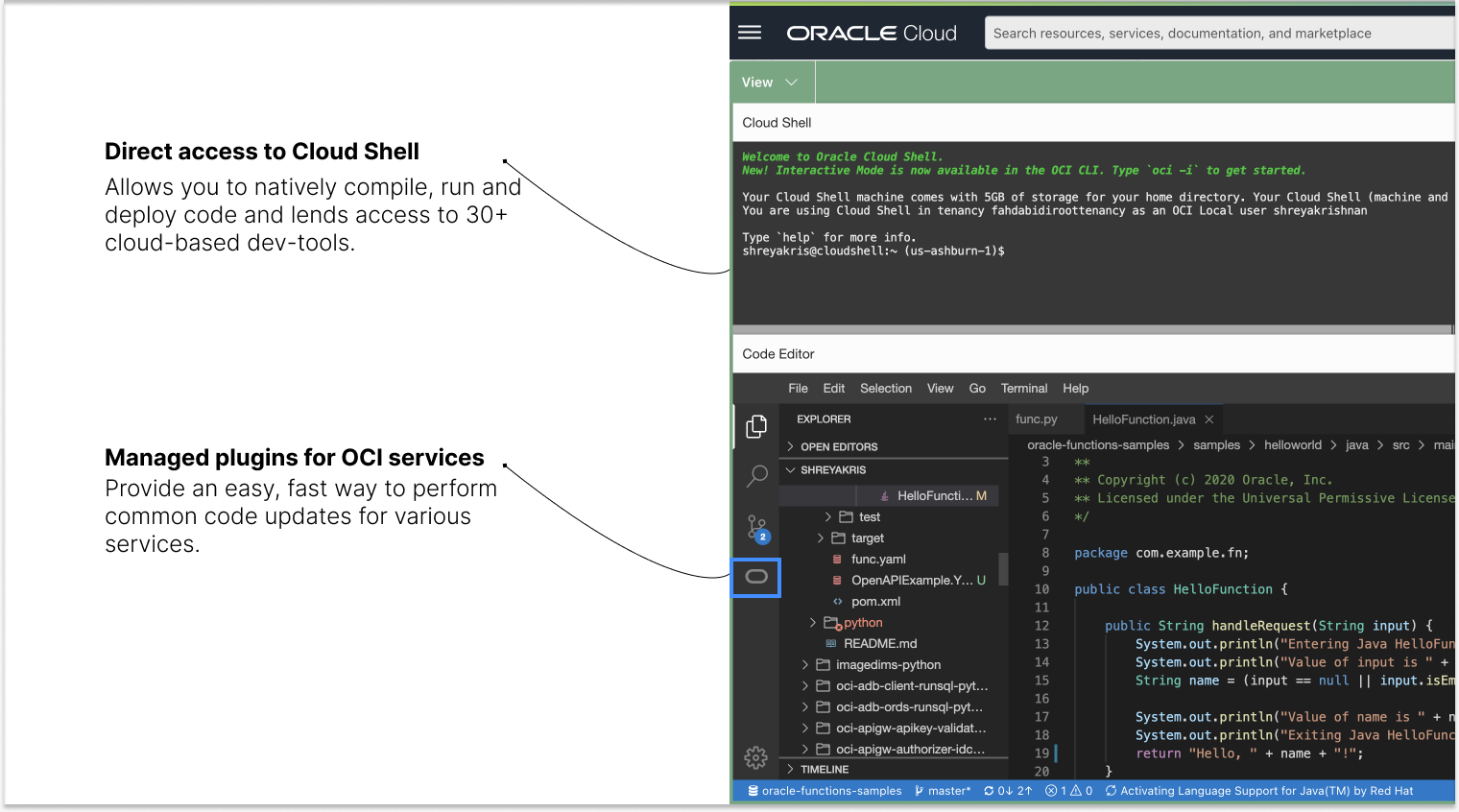
Rich language support
Code Editor reduces code development efforts through intelligent code editing features, including syntax highlighting, code suggestions, bracket matching, linting, and code navigation in 15 popular languages, including Java, Python, Docker, JSON, YAML, and Terraform.
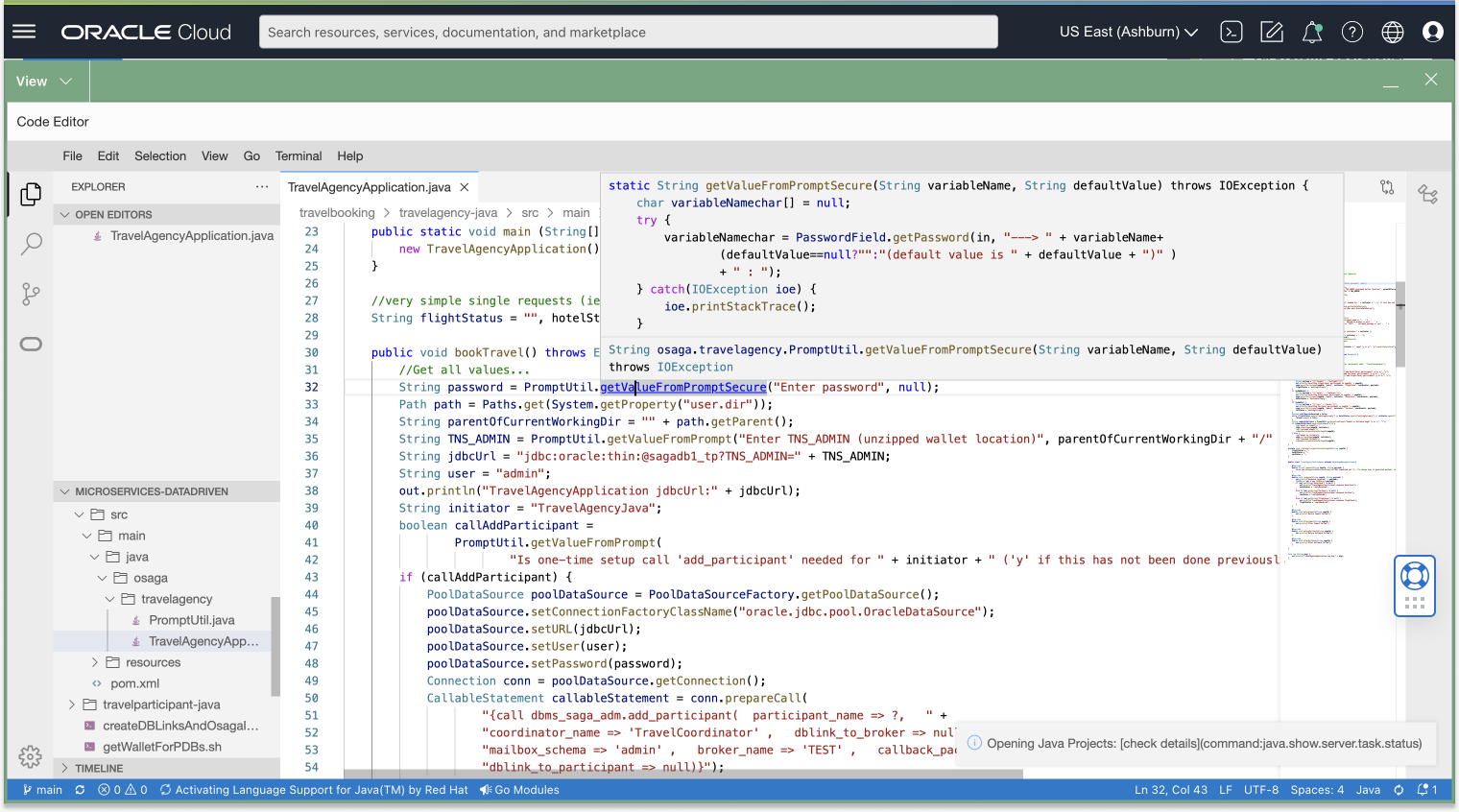
Source control and workspace management
Code Editor offers integrated source control through Git to enable team collaboration across multiple projects. You can use typical Git patterns to version and promote code directly from the Code Editor, including cloning a repository, exploring code, viewing changes made to files, and pushing changes back to a repository. You can also easily manage multiple code projects as independent workspaces and set and modify settings that apply to folders in a workspace.
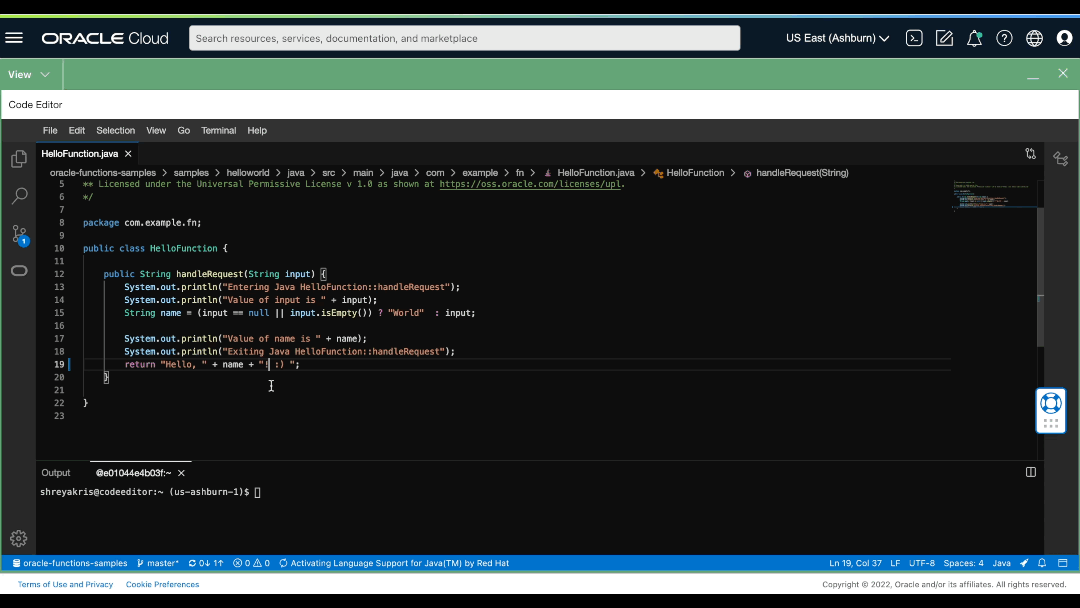
Session continuity
If your flow is interrupted and you must switch to another task, you can easily pick up right where you left off. Code Editor opens the last edited file when relaunched, automatically saves progress, and persists your user state across multiple sessions.
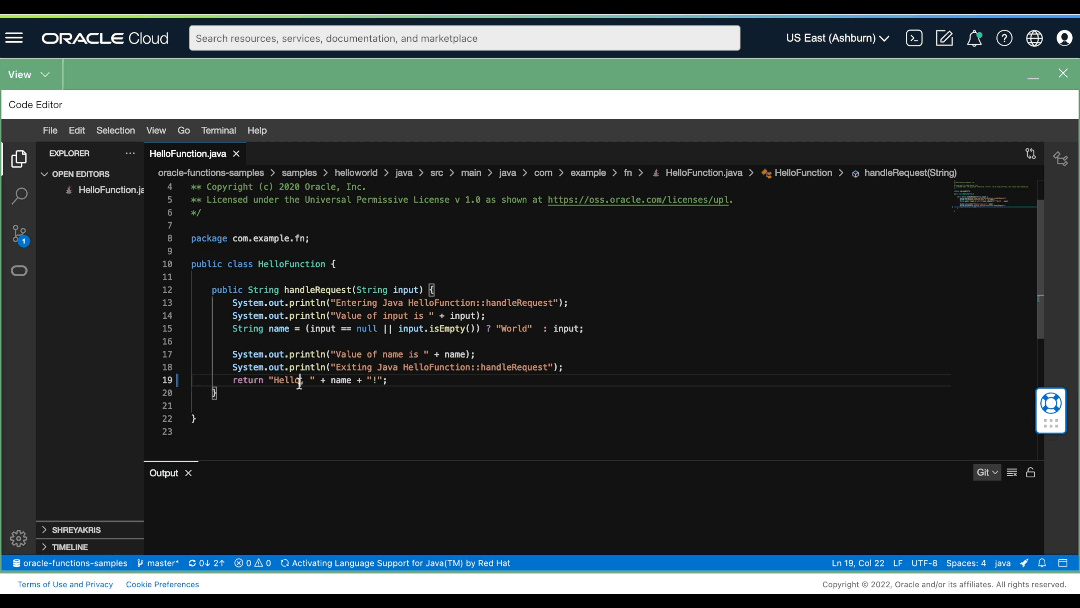
Personalized developer experience
Code editor offers a range of customization that you can apply to your development environment to make it your own. For instance, you can choose from multiple dark and light color themes, control the relative placement of Code Editor and Cloud Shell when opened simultaneously, and modify the default key bindings to match that of your favorite desktop code editor.
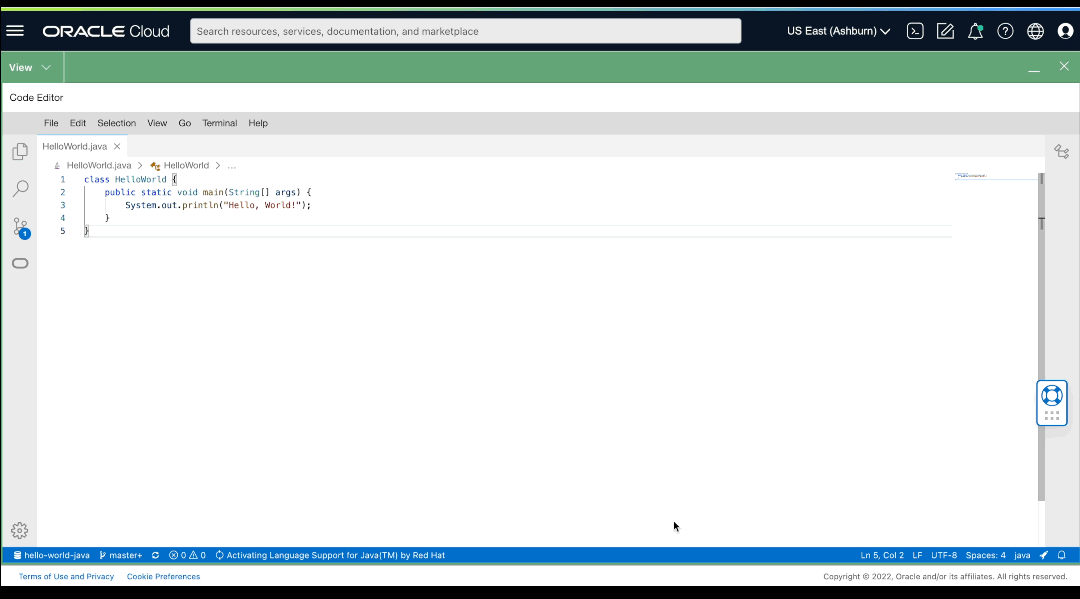
Get started today
With Code Editor, we hope to make building and prototyping solutions on OCI easier and streamline your day-to-day development efforts. Code Editor is free to use and can be launched from the top navigation bar anywhere in the Console. To get started, create a Code Editor workspace or clone an existing GitHub project into a workspace and start coding!
We encourage you to try out the code samples for common workflows, including editing and deploying functions, modifying, and applying Resource Manager configurations, and modifying Data Science job artifacts.
If you’re new to Oracle Cloud Infrastructure, you can take advantage of the Oracle Cloud Free Tier to get acquainted. We want to hear from you! Reach out if you have any questions or feedback.
For more information, see the following resources:
